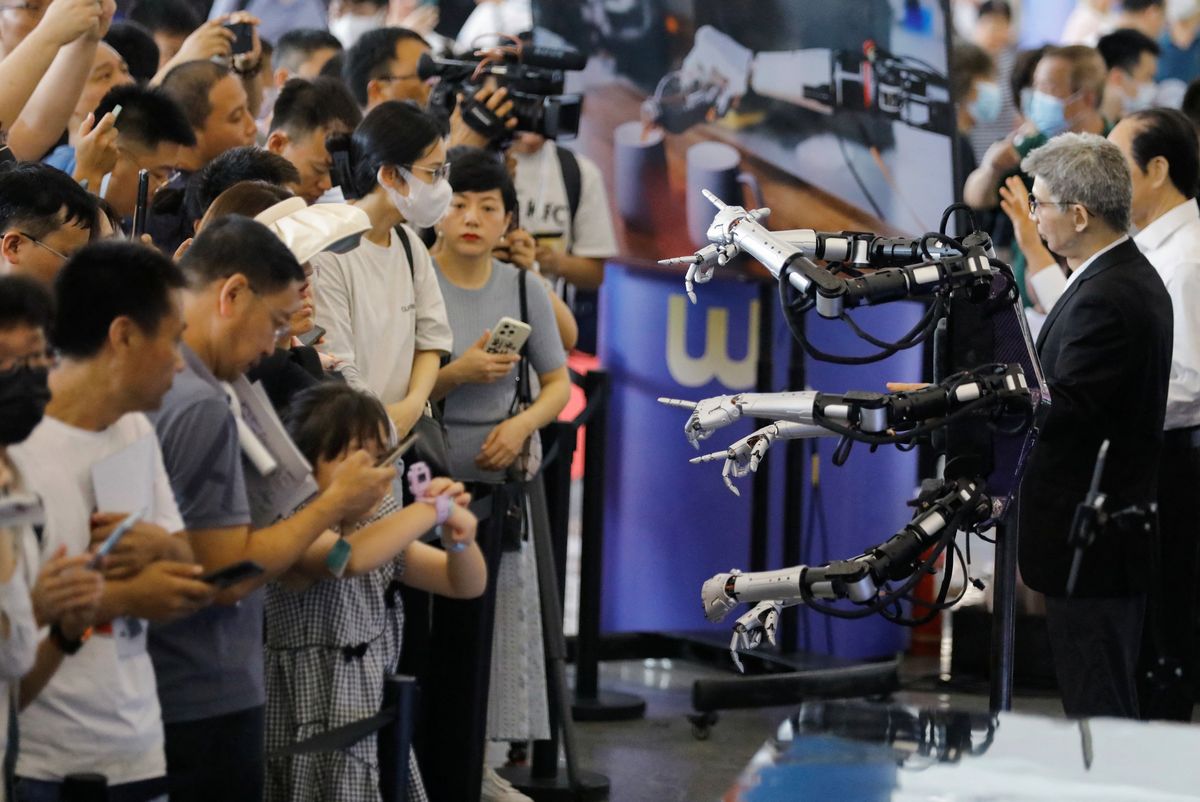A look at China's ongoing strides in robotic technology
China is known for making big waves in the world of robotics.

A few minutes every morning is all you need.
Stay up to date on the world's Headlines and Human Stories. It's fun, it's factual, it's fluff-free.
The backstory: China is known for making big waves in the world of robotics. In fact, the world's second-largest economy sold more than half of the world's total of new industrial robots last year, according to Xin Guobin, vice-minister of industry and information technology. But this didn't happen overnight; the nation has been working on it for a while. Last year, it made 170 billion yuan (around US$23 billion) in revenue from the nation's robot business. And from 2015 to 2021, China made 10 times more robots, according to the industry ministry.
Now, in the first part of 2023, the robotics industry is still going strong. China made a lot of industrial robots – 222,000 to be exact, which is up by over 5% from the same period the year before. It also made a bunch of service robots – around 3.5 million, over a 9% jump, according to the ministry.
What's fueling all of this? A few things. China wants to make its robotics industry strong and advance in the tech sector. The country is in a bit of a tech competition with the US, especially with the US’ export curbs on advanced chips to Chinese companies. Plus, China's population is dropping, and the nation's economy isn't recovering from COVID as quickly as it hoped, so automating certain sectors would give it a boost.
More recently: This year, China's government unveiled the “Robot + Application Action Plan” in January. Basically, it wants to use robots in important areas like manufacturing, agriculture, healthcare, education and others. The goal is to be a global robotics powerhouse by 2025.
Beijing announced last week that it’s creating an around 10 billion yuan (about US$1.4 billion) robotics industry fund to help robotics companies grow and do well in the market.
The development: Last Wednesday, Xin talked about the future of robots at the six-day World Robot Conference in Beijing. He outlined the importance of aiming for innovative breakthroughs in top-notch machinery, key components and new ways of making robots. He also highlighted the close relationship between robots and the new wave of information technology. Xin pointed out how robots, now even more automated and adaptable, have found their way into nearly every part of our economy and society.
Xin also flagged the increased use of industrial robots in new areas, like making cars that use clean energy, batteries and solar power. China believes that robots are on the edge of making a revolutionary jump that could benefit the country’s growth, and a lot of money and energy is being put into this to make it happen.
Key comments:
“Robots are deeply integrated with the new generation of information technology, with enhanced automation and adaptability and expanding applications. [They have] penetrated every aspect of the economy and society,” said Xin Guobin, a vice-minister for industry and information technology, at the opening ceremony of the World Robot Conference in Beijing last week.
“The robotics industry is now approaching a tipping point towards a revolutionary leap, containing huge investment opportunities and surging development momentum,” said Xin.
"China's robotics developed quickly during the past five to eight years, while Hyundai's strategy of establishing individual companies providing robotic products was due to the positive climate in the Chinese market," said Miles Chiang, manager of the East China Region of the Hyundai Robotics, to the Global Times.




Comments ()